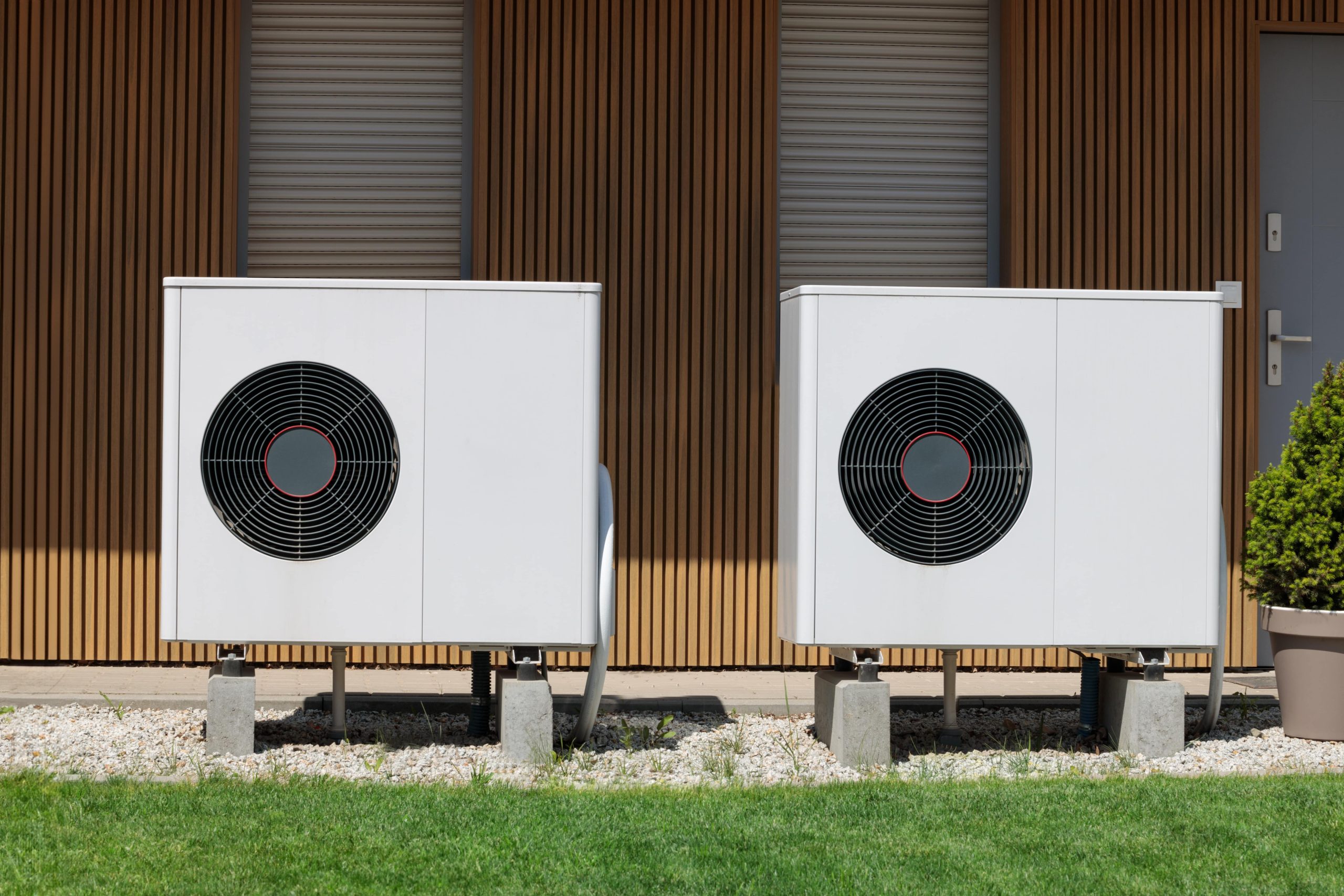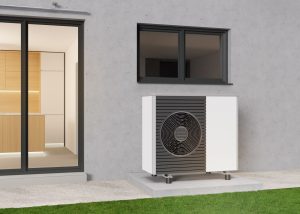
Regular maintenance of your air source heat pump is key to ensuring that your system runs efficiently, providing reliable heating year-round. Without proper care, even the most advanced heat pumps can lose efficiency over time, leading to higher energy bills and unnecessary wear on the system.
That’s why we offer professional air source heat pump servicing for both homes and businesses across Bolton and the North West. With the right maintenance, your heat pump can continue delivering low-cost, eco-friendly heating for years to come.
Why Regular Maintenance is Important for Air Source Heat Pumps
Routine maintenance is crucial for keeping your air source heat pump working at its best. Over time, dust, debris, and other factors can impact the system’s performance, causing it to work harder than necessary.
By maintaining your system regularly, you ensure that it continues to operate efficiently, saving you money on energy bills and reducing the risk of costly repairs down the line.
Neglecting maintenance can lead to reduced heating output and even shorten the lifespan of the heat pump, meaning more frequent replacements. With regular servicing, you can maximise your heat pump’s efficiency, keep your home comfortable, and protect your investment for the long term.
Top 5 Maintenance Tips for Air Source Heat Pumps
1. Clean or Replace Filters Regularly
The filters in your air source heat pump play a vital role in ensuring proper airflow and system efficiency. Over time, dust, dirt, and debris can accumulate, restricting airflow and forcing the system to work harder to heat your home.
This not only reduces efficiency but can also lead to higher energy bills. To prevent this, we recommend checking your filters every one to two months and cleaning or replacing them as needed. Keeping your filters clean ensures your heat pump runs smoothly and efficiently, delivering consistent heating throughout the year.
2. Keep Outdoor Units Clear of Debris
The outdoor unit of your air source heat pump is exposed to the elements, meaning it can easily collect leaves, dirt, and other debris. This buildup can block airflow, making it difficult for the system to transfer heat effectively.
To keep your heat pump performing at its best, regularly clear the area around the outdoor unit, especially during autumn and winter months when debris is more likely to accumulate. We recommend maintaining at least a one-meter clearance around the unit to allow for proper airflow and efficient heat transfer.
3. Inspect and Clean the Heat Pump Coils
The heat pump coils are responsible for absorbing and transferring heat, making them one of the most critical components of your system. If the coils become dirty, they can’t transfer heat as efficiently, which forces the system to use more energy and increases wear on the pump. To avoid this, inspect your coils regularly and clean them as needed.
If you’re unsure about cleaning the coils yourself, it’s a good idea to schedule a professional service to ensure the coils are cleaned safely and effectively, keeping your heat pump operating at peak performance.
4. Schedule Annual Professional Servicing
While regular at-home maintenance is important, scheduling a professional service check at least once a year is essential to ensure your air source heat pump remains in excellent working condition. During a professional service, our team will inspect all the electrical components, check refrigerant levels, and assess the overall health of the system.
By identifying any potential issues early, we can help prevent minor problems from turning into costly repairs. Annual servicing not only keeps your system running smoothly but also extends its lifespan and ensures it continues to provide efficient heating year after year.
5. Monitor the System’s Efficiency and Performance
Keeping an eye on how your heat pump is performing is one of the easiest ways to spot potential issues before they escalate. Pay attention to heating levels, energy bills, and any unusual noises coming from the system.
A sudden spike in energy costs or a drop in heating efficiency may indicate a problem with the pump, while unusual sounds could signal a mechanical issue. If you notice any of these warning signs, contact a professional to assess and resolve the issue before it worsens. Monitoring your system helps you stay on top of its performance and ensures it runs at peak efficiency.

How Long Does an Air Source Heat Pump Last?
With proper maintenance, an air source heat pump can last over 20 years, making it a long-term investment in your home’s heating system. However, to reach this lifespan, regular maintenance and professional servicing are essential.
By following the heat pump maintenance tips outlined above and scheduling annual service checks, you can help extend the life of your heat pump and ensure it continues to deliver reliable, efficient heating for decades.
At Bolton Electrical Services, we are committed to helping you get the most out of your system by offering expert maintenance and servicing to keep your heat pump running smoothly.
Benefits of Regular Heat Pump Maintenance
Regular maintenance for your air source heat pump offers several key benefits that can save you both time and money. By keeping your system in top shape, you’ll notice improved efficiency, which directly translates to lower energy bills.
A well-maintained heat pump also tends to have a much longer lifespan, often exceeding 20 years, which means fewer costly replacements. In addition, by running your heat pump efficiently, you’re reducing your carbon footprint, helping your home or business become more environmentally friendly.
Regular maintenance doesn’t just protect your investment—it contributes to a greener, more sustainable future.
Heat Pump Maintenance FAQs
How often should I service my air source heat pump?
We recommend having your air source heat pump serviced by a professional at least once a year. Annual servicing is crucial to keeping the system running smoothly and efficiently. During a professional service, our team inspects all the components, ensuring they’re in good condition and working as they should. Regular servicing also helps identify any potential issues early, preventing expensive repairs or breakdowns down the line.
What happens during an air source heat pump service?
A professional air source heat pump service involves several key tasks designed to keep your system in top condition. Our technicians will clean or replace filters, inspect and clean the heat pump coils, check refrigerant levels, and ensure all electrical components are functioning properly. We’ll also check for any signs of wear and tear, making sure your system is performing efficiently and safely.
How long does an air source heat pump last?
With proper maintenance, an air source heat pump can last over 20 years. However, to achieve this lifespan, regular care and professional servicing are essential. A well-maintained system will not only last longer but also maintain its efficiency over time, ensuring you continue to save on energy costs year after year.
Can I perform some maintenance on my air source heat pump myself?
Yes, there are basic maintenance tasks that homeowners can easily perform to keep their heat pump running efficiently. These include cleaning or replacing filters regularly and clearing debris around the outdoor unit.
However, for more technical tasks—such as checking refrigerant levels, inspecting coils, and ensuring electrical components are functioning properly—it’s always best to rely on a professional service to avoid damaging the system.
How much does it cost to service an air source heat pump?
The cost of servicing an air source heat pump can vary depending on the complexity of the system and any additional repairs that might be required. On average, annual servicing is a cost-effective investment that can save you money in the long run by improving system efficiency and preventing breakdowns.
Regular servicing ensures your heat pump remains in top working condition, helping you avoid expensive repairs or even system replacements.
